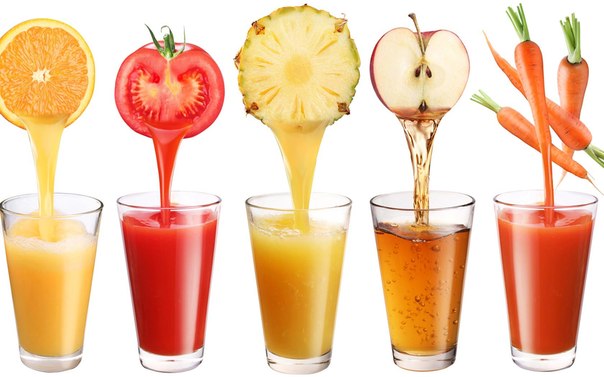The Juicy Story about Juicing
Juicing is the process of extracting juice from fruits
and vegetables. Juice extractors are appliances that turn most whole fruits and
vegetables into liquid. This is not to be confused with smoothies. Smoothies
have additional items added like milk, yogurt, or ice-cream. Juicing is a hot
new topic that is currently circulating as a weight loss strategy. Many people
are investing their hard earned money into these “Health Miracle Machines”.
Juicing machines can become very costly, with prices ranging from thirty to
five hundred dollars. The amount of produce that is required to create enough
juice can add up also. There are several health claims that are rumored and
published within juicing diet books. We must remember to beware of health
claims that seem “too good to be true”. Too often, health claims such as these
are not evidenced based.
Common
Misleading Health Claims about Juicing
·
Juicing removes toxins from the body.
There
is not enough evidence to support this health claim. The kidneys and liver are
efficient processors and eliminators of toxins.
·
Juicing results in automatic weight loss.
Weight
loss depends mainly on if you are expending more calories than you are
consuming. It does not matter if your
food is in a solid form or a liquid form. In fact, you may accidentally consume
more calories if they are in a liquid form.
·
Juicing is cheaper than a solid diet.
As
mentioned earlier, juicing equipment costs can add up quickly along with the
amount of produce needed to make enough juice.
·
Juicing allows your body to absorb more
vitamins and minerals than solid food.
There
are no studies that support this health claim.
Juicing is not necessarily healthier than eating whole
fruits and vegetables. According to the Academy of Nutrition and Dietetics, you
should consume at least two cups of fruit and two and a half cups of vegetables
daily. Another great way to make sure you are getting enough is to make half
your plate fruit and vegetables. Juicing can be a great way to supplement
fruits and vegetables in your diet if you do not eat them on a normal basis. Although,
when fruits and vegetables are juiced they lose some, if not all of their fiber
content. Fiber can help regulate your digestive system and provide a more
satisfying effect. Consumption of higher amounts of dietary fiber has been linked
with lower body weights. Juicing is not necessary for a healthy diet, but it
can be used as a supplement if you are lacking the recommended amount of fruits
and vegetables in your daily diet.
By: Jessica Lilley, Dietetic Intern, Stephen F. Austin State University
References:
http://jumpinjuice.co.uk/wp-content/uploads/2013/02/juicing-fruit.jpg
https://healthletter.mayoclinic.com/secure/pdf/MCHL_Feb_2011.pdf

No comments:
Post a Comment